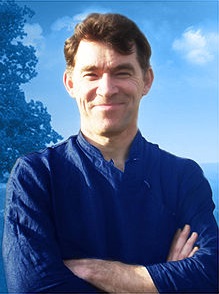Guest writer for Wake Up World
Often turmoil and trauma just seem to be destructive and negative. But in the long term, these may be balanced—or even transcended—by powerful positive effects.
You’ve probably experienced the negative effects in your own life, or at least been aware of them in people close to you—for example, a soldier who has returned from combat and suffers from post-traumatic stress disorder; a woman who has recovered from an episode of cancer but who can’t sleep at night and feels a constant anxiety that the disease will return; a person who’s been through a painful divorce and feels intense hatred and bitterness to her ex-spouse; or a person who feels depressed after becoming disabled through an accident. Other long-term negative effects may be dissociation, aggression, self-hatred, and even dissociative personality disorder (or multiple personality).
However, in recent years, psychologists have become aware of phenomenon known as ‘post-traumatic growth.’ This term was originally coined by the psychologists Richard Tedeschi and Lawrence Calhoun, who interviewed many people who had suffered traumatic life-events such as bereavement, serious illness (such as cancer), housefires, combat and becoming refugees. They found that, for many of these people, dealing with this trauma was a powerful spur for personal development. It wasn’t just a question of learning to cope with or adjust to negative situations; they actually gained some significant benefits from them. In Tedeschi and Calhoun’s terms, they experienced ‘positive life changes.’ They gained a new inner strength, and discovered skills and abilities they never knew they possessed. They became more confident and appreciative of life, particularly of the ‘small things’ that they used to take for granted. They became more compassionate for the sufferings of others, and more comfortable with intimacy, so that they had deeper and more satisfying relationships. One of the most common changes was that they developed a more philosophical or spiritual attitude to life. In Tedeschi and Caohoun’s words, their suffering led them to a ‘deeper level of awareness.’
Another psychologist, Judith Neal, studied 40 people who went through ‘post-traumatic growth’ after life-events such as serious illness, divorce or the loss of a job, as well as near-death experiences. Initially, most of them experienced a ‘dark night of the soul’, where their previous values were thrown into question, and life ceased to have any meaning. After this, they went through a phase of spiritual searching, trying to make sense of what had happened to them, and find new values. And finally, once they had found new spiritual principles to live by, they entered a phase of ‘spiritual integration’, when they applied these new principles. At this point they found new meaning and purpose in life, together with a gratitude for being alive, and even for having been through so much turmoil. (I discuss many other striking examples of ‘growth through suffering’ in my new book Out of the Darkness: From Turmoil to Transformation.) In some ways, it seems, suffering can deepen us.
The German philosopher Friedrich Nietzsche was certainly no stranger to suffering. For most of his life, he suffered from excruciating migraines which left him incapacitated for days, as well as terrible stomach pains. He was forced to retire from his professorship at university at the age of 35 due to his ill-health, and spend the rest of his life in isolation. He never found a wife or girlfriend, was ostracized by his intellectual peers—because of his unconventional ideas—and had very few friends. He was so unsuccessful as an author that he had to pay for his books to be published, and even then, many of them were pulped by the printer. Eventually his writings did begin to filter through to appreciative readers, but by then he was showing signs of mental instability. At the age of 45, he had a complete mental breakdown and spent the last ten years of his life in a catatonic state, living with his mother.
However, Nietszche had remarkable powers of resilience, and always thought that his suffering was beneficial to him. He saw his suffering as ‘the ultimate emancipator of spirit’ which was essential for his philosophy, since it ‘forces us philosophers to descend into our nethermost depths…I doubt whether such suffering improves a man; but I know that it makes him deeper.’ His experience was that when a person emerges from episodes of illness, isolation or humiliation, he is ‘as though born again, he has a new skin,’ with a ‘finer taste for joyfulness.’ In the The Prophet, Kahlil Gibran makes a similar point when he writes that, ‘The deeper that sorrow carves into your being, the more joy you can contain.’
This doesn’t mean that we should welcome suffering, or purposely seek it out. But when it does appear in our lives, we should be aware that, beneath its negative surface, there is an opportunity for growth and deepening.
Recommended articles by Steve Taylor, Ph.D:
- The After-Effects of Awakening
- Transformation Through Dying: The Aftermath of Near Death Experiences
- Elation: The Amazing Effect of Witnessing Acts of Kindness
- The Power of Forgiveness: The Transformational Effect of Letting Go of Resentment
- More Than a Chemical Imbalance – Why Depression Cannot Be Cured By Medication Alone
- Harmony of Being – Returning to Our True Nature
- Transcendent Sexuality — How Sex Can Generate Higher States of Consciousness
- The Power Of Silence
- Happiness Comes from Giving and Helping, Not Buying and Having
- Empathy – The Power of Connection
- If Women Ruled the World – Is a Matriarchal Society the Solution?
- The Puzzle of Near-Death Experiences
- The Voice Inside Your Head
- Beyond Anxiety: The Roots of Anxiety and How to Transcend It
About the author:
Steve Taylor is a senior lecturer in Psychology at Leeds Beckett University, UK. His latest books in the US are The Calm Center and Back to Sanity: Healing the Madness of the Human Mind. He is also the author of The Fall, Waking From Sleep, and Out Of The Darkness. His books have been published in 19 languages. His research has appeared in The Journal of Transpersonal Psychology, The Journal of Consciousness Studies, The Transpersonal Psychology Review, The International Journal of Transpersonal Studies, as well as the popular media in the UK, including on BBC World TV, The Guardian, and The Independent.
Connect with Steve at StevenMTaylor.com.

If you've found value in our articles, we invite you to support the release of our brand-new book, "Gratitude Practices for Kids: A Practical Guide for Adults to Instill a Spirit of Appreciation and Positivity in the Next Generation."
"Gratitude Practices for Kids" brings together over 25 innovative and accessible practices designed to enhance gratitude in everyday life. This comprehensive guide is backed by 17 scientific studies, ensuring each concept is grounded in research, underscoring our commitment to nurturing growth, emotional intelligence, and positive interactions between adults and children.
We encourage you to opt for the paperback version to celebrate this new release. Dive into its fresh pages away from digital distractions, allowing you to immerse yourself in the transformative practices it offers.
Over recent years, Wake Up World has faced significant online censorship, which has impacted our financial ability to operate. Moving into book publishing represents a strategic step to secure the ongoing funds needed to continue our mission. By purchasing Gratitude for Kids, you help us keep our content free and accessible to everyone, avoiding needing a paywall. With over 8,500 articles published in the last 13 years, we remain dedicated to keeping our valuable content open to all.









